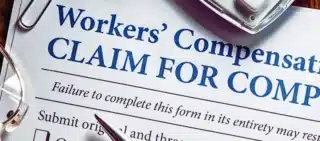
Common Reasons an Employer Won't Report Your Work Injury A total of 101,400 non-fatal work-related injuries and illnesses occurred in...


As work injury lawyers in Bloomington, IL, injured workers often ask us, “Can I sue my employer for a workplace injury?”
The short answer is no, you generally cannot sue an employer for accidents that happen on the job. That’s because the Illinois Workers’ Compensation Act generally protects employers from personal injury lawsuits by providing injured workers with no-fault benefits such as medical coverage, partial wage replacement, and disability payments.
Exceptions to the exclusive remedy rule for workers’ compensation exist, however. If your employer intentionally caused you harm, tried to conceal details about your accident, or failed to carry workers’ compensation insurance coverage, you may be able to file a lawsuit directly against the company to recover damages.
The legal options available to you will depend on the circumstances surrounding your work-related accident, including how it happened and who played a role in causing your injuries. Strong Law Offices in Bloomington will evaluate your case and provide you with free legal advice about how to recover compensation for your losses.

The exclusive remedy rule is a principle in workers' compensation law that limits an employee's options for seeking compensation after a work-related injury. In most cases, the rule prevents injured workers from suing their employers. It aims to streamline the recovery process and create a predictable system for both parties. Here’s how it works:
Exceptions to the exclusive remedy rule allow an employee to sue under certain circumstances, however.
There are certain situations where injured workers can sue their employers for work-related accidents. Here's a breakdown of some common exceptions to the exclusive remedy rule:
If your employer intentionally caused your injury, or acted with reckless disregard for your safety, you may be able to sue the employer outside of workers' compensation. This could include situations like assault, providing faulty equipment while knowing the danger, or forcing you to perform unsafe tasks.
If your employer did not have workers’ compensation insurance coverage when your accident happened, you can sue the employer directly for your medical bills, lost wages, and pain and suffering.
If your employer deliberately hid the severity of your injury or the connection between your injury and your job, and this resulted in your condition worsening, you might have grounds for a lawsuit against your employer.
You usually cannot sue your employer for a workplace accident that was caused by someone else. However, there are some exceptions that may allow for legal action beyond workers' comp.
If a third party—such as an independent contractor, delivery driver, manufacturer, or subcontractor—was responsible for the incident, you may have the right to file a personal injury lawsuit against that individual or company. This is called a third-party claim, and it allows injured workers to pursue compensation for damages that workers' compensation doesn’t cover, such as pain and suffering, emotional distress, and full lost wages.
A third party is any person or entity other than your employer or a co-worker who plays a role in your workplace injury. This could include:
Generally, no. Illinois workers' compensation does not cover pain and suffering, and you usually cannot sue your employer directly for those damages. However, if a third party caused your injury or your employer acted intentionally, you may be able to pursue additional compensation through a lawsuit.
The damages that are available and factors surrounding fault are the main differences between filing a workers’ comp claim and suing your employer. Workers' comp provides no-fault benefits like medical care and partial wages. A personal injury lawsuit can recover broader damages—like full lost income and pain and suffering—but requires proving fault.
Yes, you’ll likely need a lawyer to sue your employer. These cases are legally complex, and proving an exception to the exclusive remedy rule requires strong evidence. A local attorney at Strong Law Offices can investigate your claim and guide you through your options.
At Strong Law Offices, our workers’ compensation attorneys in Bloomington dig deep to identify all sources of compensation because we know that your financial future depends on it. Contact us for a free consultation to find out what legal options are available to you.

Common Reasons an Employer Won't Report Your Work Injury A total of 101,400 non-fatal work-related injuries and illnesses occurred in...

At Strong Law Offices, we have a team of workers' compensation lawyers who understand the financial setbacks and physical limitations...

Common Equipment Involved in Run-Over Accidents Illinois job sites, from construction zones to industrial plants, depend on machinery to stay...